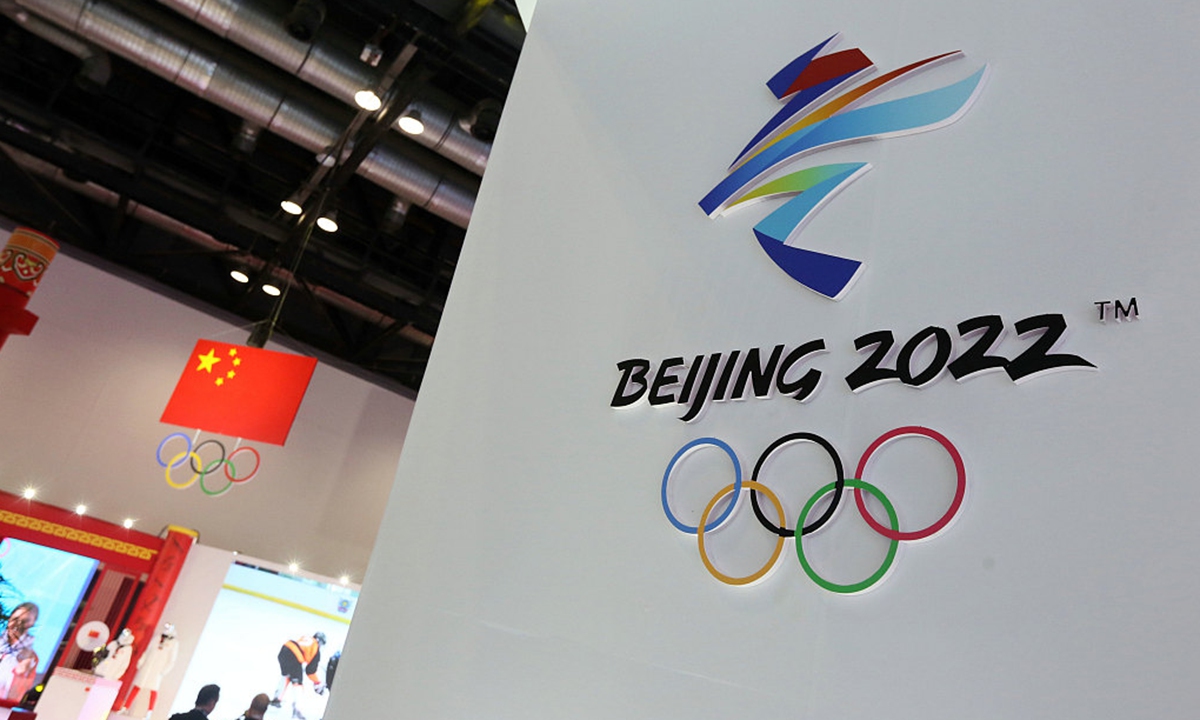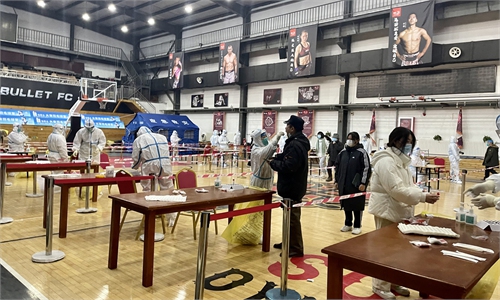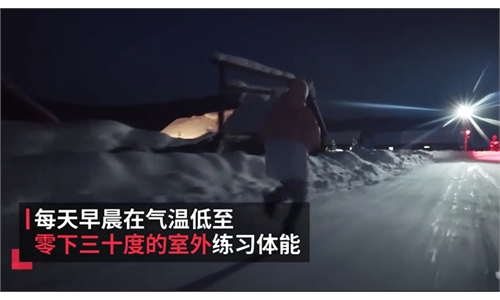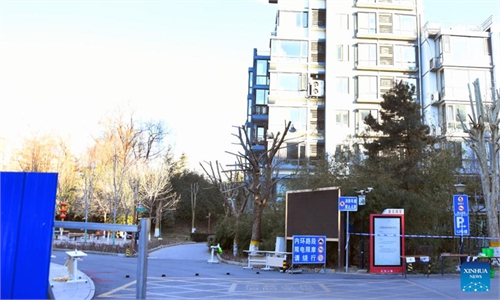Olympic Village begins closed-loop management
Designated audience essential for current epidemic situation: expert

Beijing 2022 Winter Olympics Photo:VCG
The Beijing Winter Olympic Athletes' Village on Tuesday officially launched its closed-loop management and entered into pre-Games operations, as the globally anticipated event officially enters its final stage of preparation.
For the audience, the Beijing 2022 Olympic and Paralympic Winter Games Organizing Committee also announced the ticketing policy for the Games - a designated audience will be selected for the games.
The media manager of the Olympic Village confirmed to the Global Times on Tuesday that the village has entered closed-loop management. Staff members entered the village weeks in advance and have all received booster shots, while the first group of athletes will start to move in on January 23.
During the close loop management trial, nearly 3,000 people were involved and the overall entry system also stood the test of several peak arrivals.
Staff at several venues also confirmed to the Global Times that the venues are already in pre-Games operations and that measures for epidemic prevention and control have been tightened.
A spokesperson of the Beijing Organizing Committee told media on Monday that, since the closed-loop management trial started on January 4, the overall operations have run smoothly and have not affected Beijing residents.
As more contagious Omicron variant cases appeared in the city, the importance of epidemic prevention and control has been repeatedly stressed by Olympic staff.
"In the final optimization and enhancement stage, the first priority is to tighten epidemic prevention and control, which is the key to the success of the event," Zhang Suzhi, executive director of the Yanqing venue complex, told Xinhua News Agency on Tuesday.
Beyond closed-loop management, limiting the number of spectators and groups is an important part of efficiency prevention and control during the Games, observers noted.
According to documents sent to the Global Times by an invited spectator, spectators watching the events must have received booster shots and have had no contact with confirmed COVID-19 cases or asymptomatic infections 14 days prior to the games, and must come from a community where no cases have been reported in 14 days.
Invited spectators said each spectator must have two nucleic acid tests within 96 hours prior to watching the games, and the tests must be done more than 24 hours apart.
When asked if they had any concerns about getting infected from watching the games, the spectators said they did not have such concerns.
An employee surnamed Li, who works for a state-owned enterprise, told the Global Times that employees who sign up to watch the games will travel to the venue on a bus arranged by the Organizing Committee and cannot go on their own. Employees can also bring their family members along, but they must register in advance for approval.
As they are to watch the outdoor events, spectators are also required to wear down jackets with a down content of 300g or more, Li said.
"I am not a winter sports enthusiast, but after signing up to watch the Winter Olympics, I also started to study the events in order to cheer for the athletes," she said.
The Global Times learned that the invited spectators are mainly employees of state-owned enterprises and students attending universities in Beijing.
Since there are COVID-19 cases reported throughout China, organizing designated spectators to watch the games compared to selling tickets to the public would greatly reduce the probability of an outbreak among spectators, a Beijing-based epidemiologist told the Global Times on Tuesday on conditions of anonymity.
If tickets are sold to the public, it will be difficult to track the spectators, the epidemiologist said.
Following the announcement of the ticketing policy, there was some public suspicion that the organized spectators did not know the game as well as the snow and ice enthusiasts, which may have led to a cold atmosphere at the games. In response, sports experts told the Global Times that organizing spectators is not likely to affect the atmosphere at the games.
"Winter sports are a niche in China," Zhao Jisheng, a professor at the College of Physical Education and Sports of Beijing Normal University, told the Global Times. "Organizing spectators will not only help increase attendance, but the vast majority of spectators will echo the atmosphere on the field."
The policy may disappoint some winter sports fans, but it is essential in the current epidemic situation, he said.
Despite sporadic outbreaks of COVID-19 in the country and the recently reported Omicron in Beijing, Chinese officials are confident that the virus will not impact the games.
"I am convinced that as the Chinese government and people have put in place the comprehensive and effective dynamic zero-COVID policy under the leadership of the CPC, you can rest assured that there will be sound epidemic prevention measures for the Beijing Winter Olympics," Zhao Lijian, spokesperson of the Chinese Foreign Ministry, said at a press conference on Monday.



